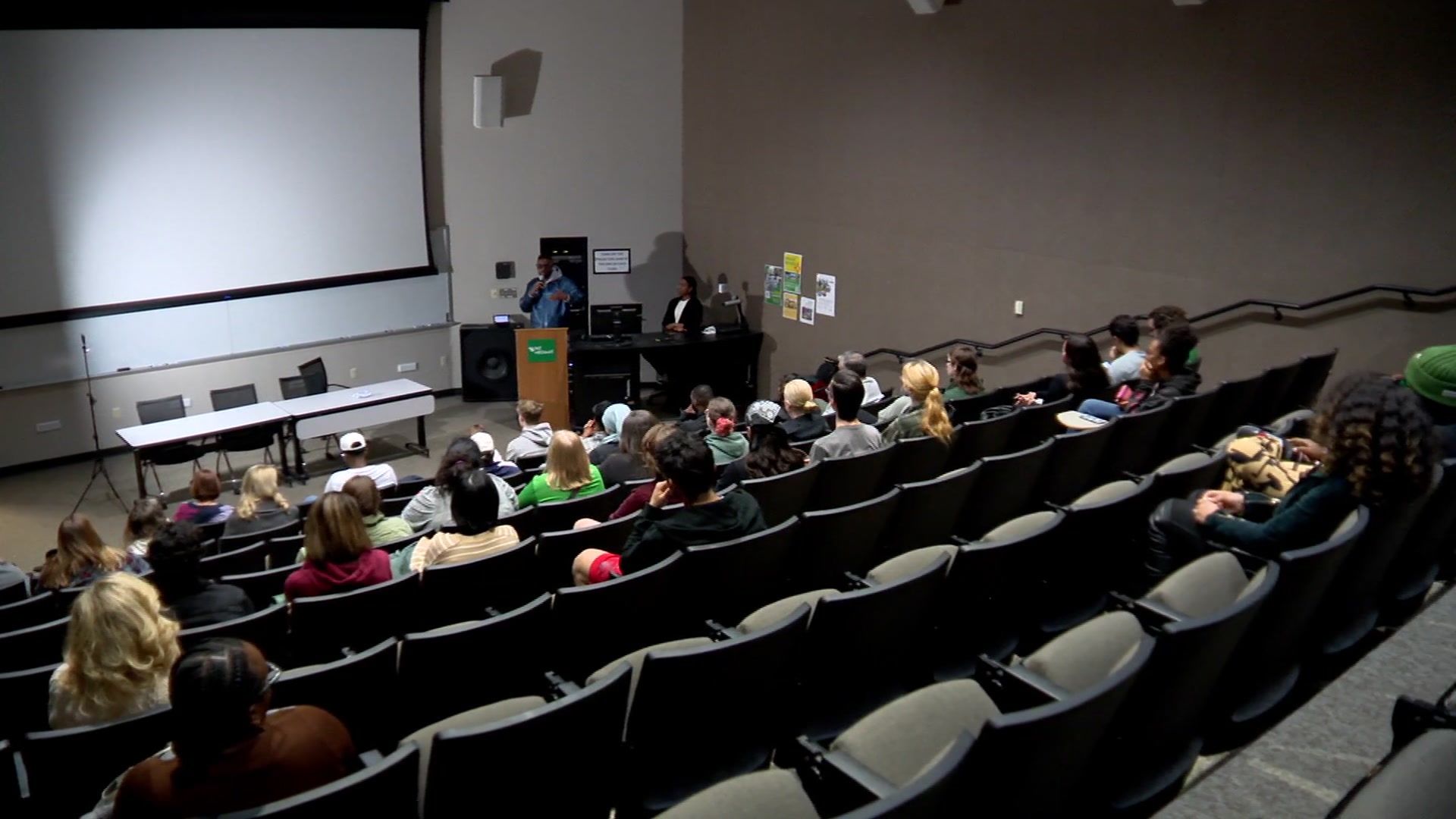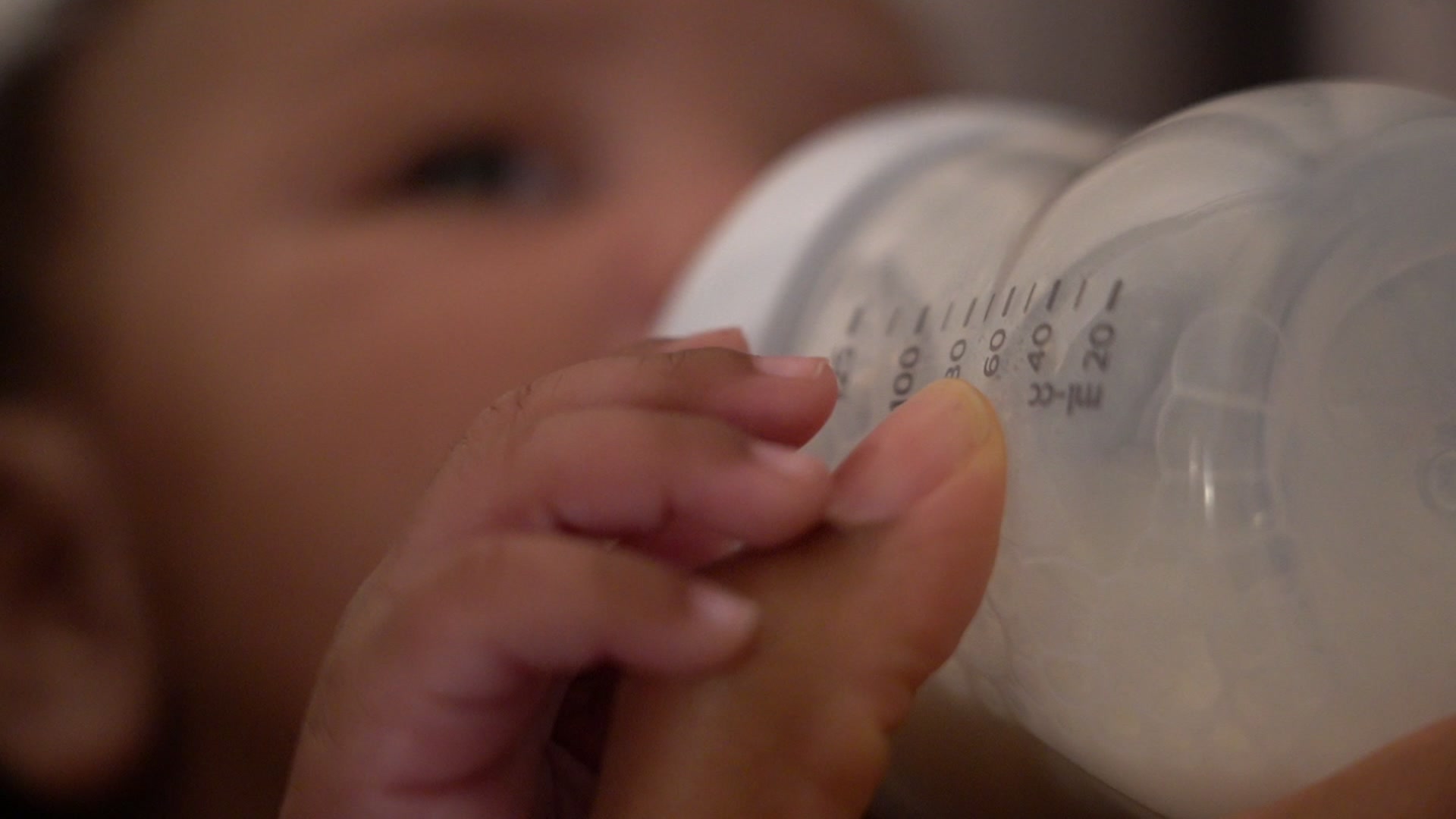Evonne Kaplan-Liss smiled and joked as she walked to see the former football player who’d had a huge impact on her life.
“I feel like I’m getting married. Is that him?,” she asked.
The reunion was miles and decades in the making. The two had connected by chance and circumstance at another place and time decades ago.
Rolf Benirschke shared her anticipation.
“Oh, my gosh, oh my gosh,” he smiled as he caught glimpse of the woman who’d taken the place of the teenager he’d met so long ago.
“Oh, my gosh, Evonne, what a story,” he said as the two saw each other and hugged for the first time since they first met back in 1983.
Their story started when Kaplan-Liss was 15 and growing up in New York.
Local
The latest news from around North Texas.
She’d been diagnosed with ulcerative colitis, one of the irritable bowel diseases. She’d spent four months in the hospital and left with an ostomy bag for waste to exit her body.
She was home recovering when a tv show featured the doctor who’d saved her life and a pro football player who know exactly what she was going through.
“We watched the entire show, and I’m like, ‘Wow’,” Kaplan-Liss recalls. “And he tells his whole life story, that he almost died, that he had a bag and he was playing football.”
“Everything was in front of me, and my body started to rebel. I didn’t know what to do,” said Rolf Bernirschke, a former kicker for the San Diego Chargers. He was 24, enjoying the time of his life, when he was diagnosed with irritable bowel disease and found himself in a fight for his life.
“I’d ultimately play 10 years,” says Bernischke. “This was my second, and statistically the best, but there should be footnote that the young kicker was dying.”
Benirschke survived and gives credit to the same doctor who saved Kaplan-Liss. Benirschke used his platform as a pro football player to share his story, a story he told on TV and then to Evonne when her father arranged for the two meet in 1983. The Chargers were in New York to place the Giants when the teenager and the player met.
“I was hunched over and little, and he was like a god to me, and he walked over to me and my parents,” Kaplan-Liss says. “And we start talking and sharing the same stories and fears. And he told me how at first he had trouble showering with a bag in front of his macho teammates. Then he looked down and said, ‘We’ll that’s what was keeping him alive,’ and then he was okay with it.”
And, in that conversation on the sidelines of the football field, Evonne found someone who understood everything she was going through and the realization her life could go on as she wanted with all the dreams she had for herself.
“He changed my life,” she says of that day. “He doesn’t want to hear it, but he changed my life and he gave me hope.”
She wrote about their connection in a college essay, but the two never saw each other again.
Rolf lived in California. Evonne’s life was in New York.
She had 20 more surgeries, yet went on to act, become a journalist, a pediatrician, a professor, a wine and mother.
And, then last year, life took her on a new adventure.
The new TCU and UNT Health Science Center School of Medicine in Fort Worth hired Kaplan-Liss as an assistant dean to teach the art of communication and empathy to students. She will serve as the assistant dean of narrative reflection and patient communication when the school opens in 2019.
“And, it’s a very unique position,” she says. “Not to our knowledge is there a dean level position where I’m just dedicated to training the faculty and the medical students how to me empathetic and compassionate communicators with their patents but also with each other. “
And, this new role is where Kalpan-Liss and Bernischke connected again.
Bernischke’s son Ryan left California to attend TCU. The Bernischkes fell in love with the campus and Rolf had opportunities to visit with the chancellor.
Last fall, he was invited to a presentation about the new medical school.
He’d become a nationally recognized patient advocate and co-founded a company called Legacy Health Strategies focused on helping patients successfully navigate their health journeys.
Rolf was there to learn about the new school. Evonne was there to talk about her new program.
Both were unaware the other was there. They never saw each other, yet their stories connected.
“This gal tells Evonne about me, and Evonne tells her, “Oh my gosh, I met him,” Benirschke says.
“It’s gotta be Rolf Bernischke,” recalls Kaplan-Liss.
“And, that’s how this reunion started,” said Bernirschke.
More than three decades after they’d first met, the teenager and the football player who’d bonded over their shared battles facing a life-threatening illness connected again.
The emails and phone conversations happened first. Then on April 3 on the campus of TCU, Evonne and Rolf saw each other for the first time since 1983.
“Flying over here, I was trying to figure out what you looked like. I had no idea, but your eyes are just the same,” said Benirschke as they shared a warm embrace.
“It’s just unbelievable. I get chills,” said Kaplan-Liss.
“To see what she’s gone on to do is amazing,” says Benirschke. “It’s not uncommon, though, when someone young goes through an illness like this, they have a choice. It always changes us, but the choice will be to stay bitter or become better.”
“He helped me on the worst day but because of him, I gave back and did for others what he did for me,” says Kaplan-Liss. “And, it set me on this path of knowing I could make a difference.”
Through all those years, neither had any idea the other had eventually ended up in fields focused on improving communication for doctors and patients.
Kaplan-Liss left her pediatrics to become a professor focused on empathy in communication from doctor to patient. Bernischke’s work was on the patient side and and a curriculum built on empathy, trust and connection.
They each believe more empathetic conversations lead to better results for patients and more resilience for doctors.
“Our combined experiences will be able to put something together that’s impactful for young physicians and patents and change how medicine is practiced going forward,” says Benirschke.
“We’re in it for the long haul to make a difference in how patients are treated and communicated with, and for resilience for physicians,” says Kaplan-Liss. “Physician burnout is huge, and it has a lot to do with empathy and communication. And, Rolf and I can really make a difference with that.”
The two will continue conversations on how to use the new medical school to bring empathy and compassion to an audience that needs to hear it.
Each believes it’s why they survived the conditions that threatened their lives.
“When I look down at my scar every day after 21 surgeries, I say ‘This is my badge of honor. I’m here for reason.’ “And, he is, too,” says Evonne. “I realized at 15, I can’t control what happens to me but I can control how I handle what happens to me. That’s a life lesson for a lot of people, and I was blessed to get it at 15. And, Rolf, has it, too, and that’s our connection.”




